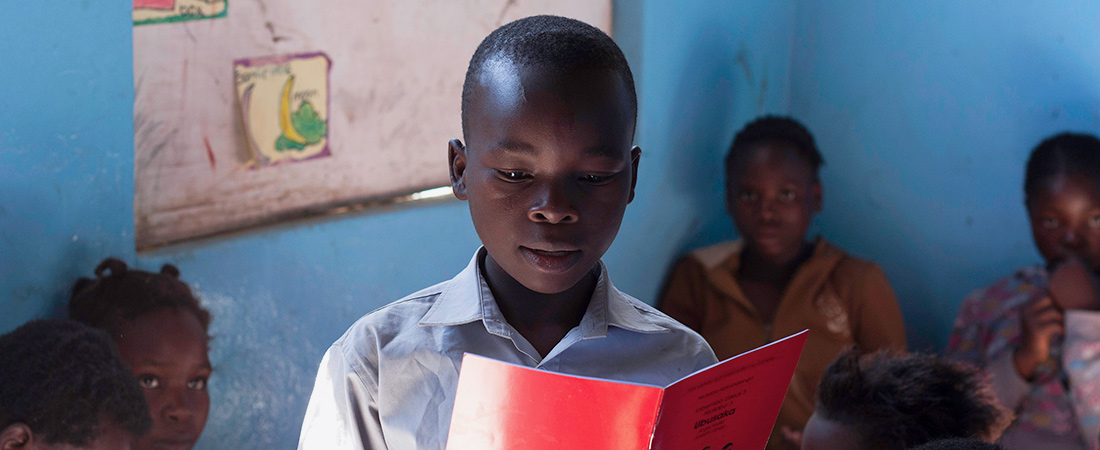
Literacy and mathematical programs deliver the promise of education to millions of children around the world.
We create and test learning experiences that lead to deep understanding and an ability to act thoughtfully upon the world. Whether in settings that are rich or poor in resources, we are committed to building sound foundations in literacy, science, and mathematics.
Through engaging classroom curricula, media instruction, digital tools, and teacher training, we equip children and young adults with the fundamentals they need to be successful—in school and in life.
Related Content
A Second Chance at School in Mali
In Mali, accelerated education is helping thousands of children get back to school.
Is Social Media Harmful to Students with Disabilities?
A new report on social media finds some benefits, but higher cyberbullying rates.
3 Ways to Stop the Summer Slide
Want to help kids keep learning this summer? Here are some tips for parents and caregivers.
How Schools Can Support Students Affected by Opioids
The trauma children experience as a result of opioid misuse at home can affect how they do in school—but schools can help.
3 Ways Schools Can Support Children Affected by the Opioid Crisis
Schools are uniquely positioned to address the needs of children exposed to trauma, says Shai Fuxman.
Accelerating Education in Liberia
An estimated 300,000 Liberian children do not attend school. What’s being done to provide more access to education?
Projects
Resources
Here are a few of our resources on behavioral, physical, and mental health. To see more, visit our Resources section.
This website provides an overview of a professional development program for middle grades mathematics teachers and links to selected resources for use in in-person or remote instr
This paper presents a forward-looking projection of school participation profiles for school feeding programs up to the year 2030.
This paper explores how the Government of Mali, with support from the U.S. Agency for International Development and Education Development Center, Inc., used innovative tools and methods (including georeferencing, mapping, and school/village surveys) to better understand the twin challenges posed by home-school distance and inefficient teacher distribution in rural communities and why Mali chose an old-school solution: one-room, multi-grade schools equipped with trained teachers and appropriate materials.
This report shares the findings from a landscape study commissioned by The Wallace Foundation and conducted by EDC to advance knowledge of how school districts ensure and improve the quality of the
Rwanda has made commendable efforts to improve basic education, including literacy in the early grades.
This report provides an overview of EDC’s Elementary Science Summit.
There is a significant—and growing—body of evidence that well-designed and effectively delivered school meal programs are a cost-effective and scalable means to build human capital, improve learning outcomes, and improve health and nutrition.
This brief presents findings from an impact evaluation of the PAQUED (Project D’Amelioration de la Qualite de l’Education) project’s six-month experimental reading intervention in the Democratic Republic of Congo (DRC).
This resource is designed to help K–8 teachers prepare their students to succeed in STEM learning in high school and thrive in STEM careers.
EDC’s systemic equity review framework helps education leaders take a deeper look at inequities in order to understand the complex systems that affect student performance. While equity audits have historically played a role in curriculum assessments and state accountability systems, achievement gaps by race and class persist in U.S. public schools.